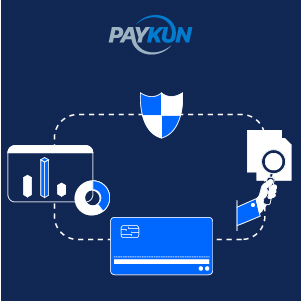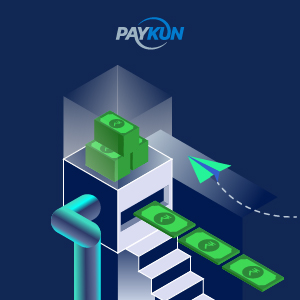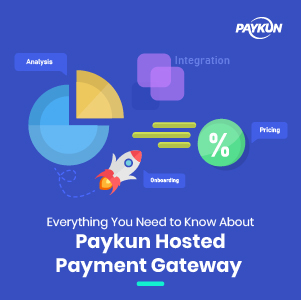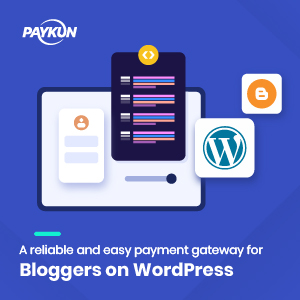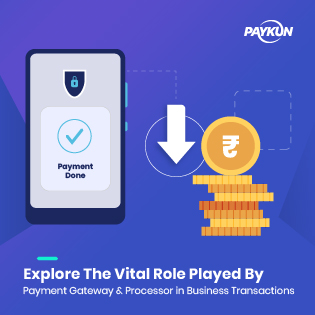Today, online payment processing for your business has become a lot easier compared to a few years back. Various aspects such as Security, trust, registration process, technical ease, availability, etc have made it smooth to get an online payment system.
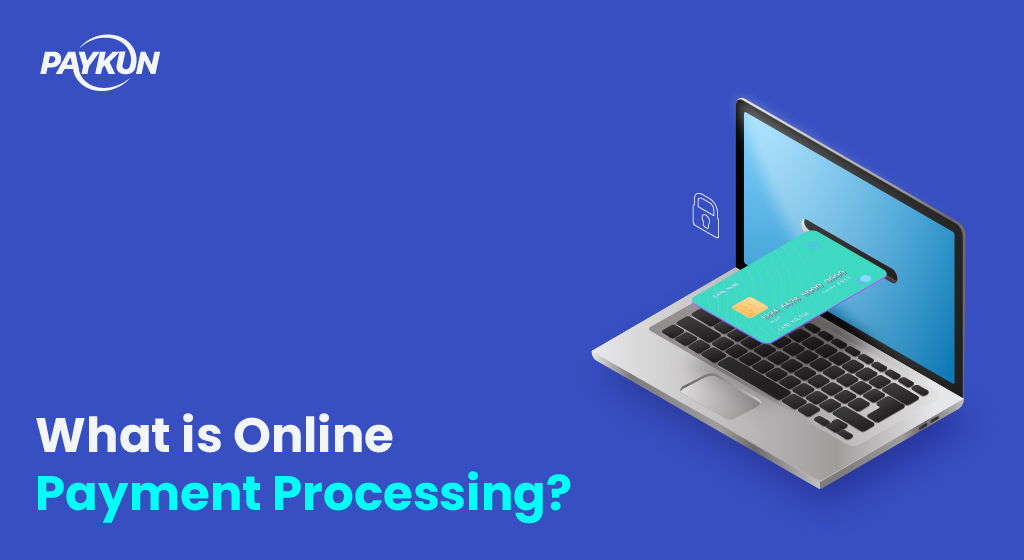
The multiple online payment modes can be added to your business website or mobile application with the help of the payment gateway integration.
Well, not only the website and app but also social commerce and offline shops can easily enable payment processing, for example, a PayKun product known as the payment links can help you accept online payments through email, WhatsApp, etc.
What is payment processing?
Online payment processing means electronic (funds or money) payments made in exchange for goods or services. The transaction of the payments is done over the internet.
To enable this the customer will need to have a secure medium through which she can enter the financial details and initiate the authentication and authorization for the payment deduction at her bank or other selected online payment modes.
For the payment processing, she would need such infrastructure providers. There would be multiple technology facilitators and parties in the middle. These include payment processors, payment gateway, acquiring bank (merchant account), issuing bank (customer’s bank account), etc.
Who are these important parties in the process?
Let us understand in brief the role of the involved parties in online payment processing.
Payment Processors VS Payment Gateways
Payment Processors are the middle parties that securely transfer the information for authentication and authorization from the card to the customer’s bank. They carry out various functions related to fraud detection and prevention, card validity & limits, funds availability, etc.
Payment Gateway provides the technology and infrastructure to pass on the information from the merchant side (website) to the payment processors, for example, transmitting to the payment processing companies (card issuers). Payment gateway is a key element making the whole payment processing possible with its technology.
Payment Gateway VS Merchant Account: Read here
How does payment processing work?
When you make an online payment, the process completes within seconds but at the backend, quite a complex sequence is carried out to complete one transaction.
Here’s is the step-wise process to explain how the online payment process works when a transaction is initiated on a website or payment link through a payment gateway.
- The customer proceeds to the checkout to make payment after he has selected and added the products
- He enters his basic details and selects the payment method
- When he selects the card payment, he would enter the card details such as the card number, CVV, cardholder name, and expiry date. After that, he would complete the authentication with the OTP/Password.
- With this, the card information is transmitted to the payment gateway securely.
- Payment Gateway transmits the same to the payment processors, who in turn pass to the card networks.
- From there, the information reaches the customer’s bank for authorization. The bank would check if the required funds are available and authorizes the transaction.
- The reverse process takes place for transmitting the transaction status success or failed.
- The payment gateway shall receive the status and it would be displayed to the customer.
- The funds would be received in the acquiring bank (merchant account) and will be settled in the merchant’s bank account as per her settlement cycle.
There are various reasons why the transaction may get failed from the payment processor or the bank side such as Bank Authorization, Authentication Failure, Insufficient Balance, Transaction not Supported, Connectivity Problems, Bank-side Security, Late Response, Server and Bank downtime, etc.
Types of online payment modes
With digital payments gaining popularity, various online payment modes are being introduced and adopted by the payers.
The payment gateway offers multiple payment modes for online payment processing. For example, PayKun has 120+ payment options such as debit cards, credit cards, wallets. UPI, QR code, net banking, and EMI.
Must Read this blog to know these payment methods in details and also understand how Multiple Payment Options of PayKun increases Business Revenue
Security
It is important to process the online payments securely, for that, it is essential that the required security compliances are in place.
PayKun is PCI DSS Level 1 compliant making the data safe and secure. It’s AES Encryption Standards transmit the data in an encrypted manner. And the SSL would secure the connection between the server and the website.
Start with PayKun
Accepting online payments is a must in today’s time. The trend is just going to get better and there is no turning back from it.
With the long-term goals in mind, partnering with the right payment gateway becomes important.
Know Five immediate benefits of using PayKun Payment Gateway for your business


